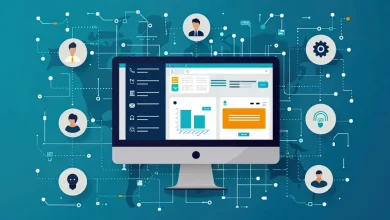More Than a Caffeine Kick: The Risky Side of Energy Drinks

In today’s fast-paced world, energy drinks have become a popular go-to for students pulling all-nighters, professionals juggling demanding schedules, and athletes looking for a quick performance boost. With promises of increased focus, heightened alertness, and improved stamina, it’s no wonder energy drinks line the shelves of convenience stores and vending machines. But behind the flashy cans and bold claims lies a growing concern about the health implications of these seemingly harmless beverages.
The Ingredients Behind the Buzz
At the heart of most energy drinks is caffeine—often in large, concentrated doses. While a cup of coffee might contain about 95 milligrams of caffeine, some energy drinks pack as much as 300 milligrams or more in a single serving. That’s equivalent to three or more cups of coffee in one quick gulp.
In addition to caffeine, energy drinks often contain sugar, guarana (a plant-based stimulant), taurine (an amino acid), B vitamins, and herbal extracts. While some of these ingredients are generally safe in moderation, combining them in high quantities can amplify their effects and lead to unintended consequences.
The Physical Side Effects
One of the most immediate and noticeable effects of energy drink consumption is an increase in heart rate and blood pressure. This can be particularly dangerous for individuals with underlying heart conditions. In fact, some studies have linked energy drink consumption to cardiac events such as arrhythmias (irregular heartbeats), heart palpitations, and in rare cases, sudden cardiac arrest—especially when consumed in excess or mixed with other stimulants.
Additionally, many energy drinks are loaded with excessive amounts of sugar—some containing as much as 54 grams in a single can, which is more than twice the recommended daily limit. This high sugar content can cause a rapid surge in blood sugar levels, followed by a sudden crash that leaves you feeling more exhausted than energized. Over time, consuming too much sugar contributes to serious health concerns like obesity, type 2 diabetes, and tooth decay. For those in New Market, VA dealing with dental damage from high sugar intake, options like dental implants financing are available to help restore your smile without overwhelming your budget.
Mental and Emotional Impact
While the short-term mental boost is often why people reach for energy drinks, the long-term effects may tell a different story. High doses of caffeine can cause anxiety, restlessness, and sleep disturbances. Sleep, in particular, is crucial for overall well-being, and reliance on energy drinks to combat fatigue can lead to a vicious cycle of insomnia followed by even more caffeine use.
In some individuals, especially adolescents and young adults, frequent consumption has been linked to increased risk of mood disorders, including depression and anxiety. There is also growing concern about the potential for caffeine dependence and withdrawal symptoms like headaches, irritability, and fatigue when energy drink intake is reduced or stopped suddenly.
The Danger of Mixing with Alcohol
One of the most troubling trends is the combination of energy drinks with alcohol. Often seen in social settings and parties, this mix can be deceptive—and dangerous. Caffeine masks the depressant effects of alcohol, making individuals feel more alert than they actually are. As a result, they may underestimate their level of intoxication and continue drinking, increasing the risk of alcohol poisoning, impaired judgment, and risky behavior.
Several studies have shown that individuals who consume energy drinks with alcohol are more likely to engage in hazardous activities such as drunk driving or unprotected sex. This dangerous mix is a growing concern for healthcare professionals and parents alike.
Youth and Energy Drinks: A Risky Relationship
Teenagers and young adults are among the biggest consumers of energy drinks—and they’re also among the most vulnerable. Their developing brains and bodies are more sensitive to the effects of caffeine and other stimulants. Excessive consumption can interfere with growth, sleep patterns, and even academic performance.
Some countries have begun taking action by placing age restrictions on energy drink sales or requiring warning labels. While these measures are a step in the right direction, education and awareness are still the most powerful tools in helping young people make informed choices.
Making Smarter Choices
Energy drinks might offer a quick fix for fatigue, but they’re no substitute for adequate sleep, a balanced diet, and regular physical activity. If you find yourself relying on these beverages to get through the day, it may be time to evaluate your overall lifestyle habits.
For those needing a boost, there are safer alternatives: stay hydrated with water, snack on energy-boosting foods like nuts or fruit, or take short breaks to stretch and move around. Even a quick walk can do wonders for alertness and concentration without the health risks.
In Conclusion
Energy drinks may promise more energy, focus, and endurance, but they come with a hidden cost. From heart issues to mental health concerns, the risks are real—especially when consumed in excess or combined with other substances. Before reaching for your next can, consider what your body really needs. Often, the best remedy for fatigue isn’t found in a can, but in caring for your health with sustainable habits.

Source: More Than a Caffeine Kick: The Risky Side of Energy Drinks




